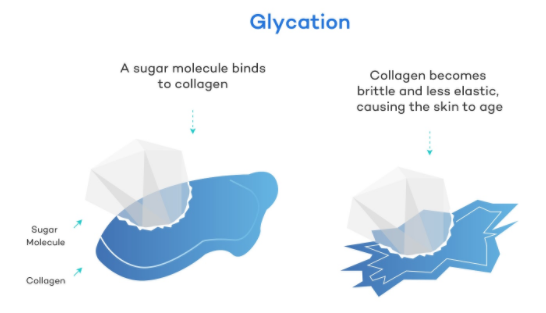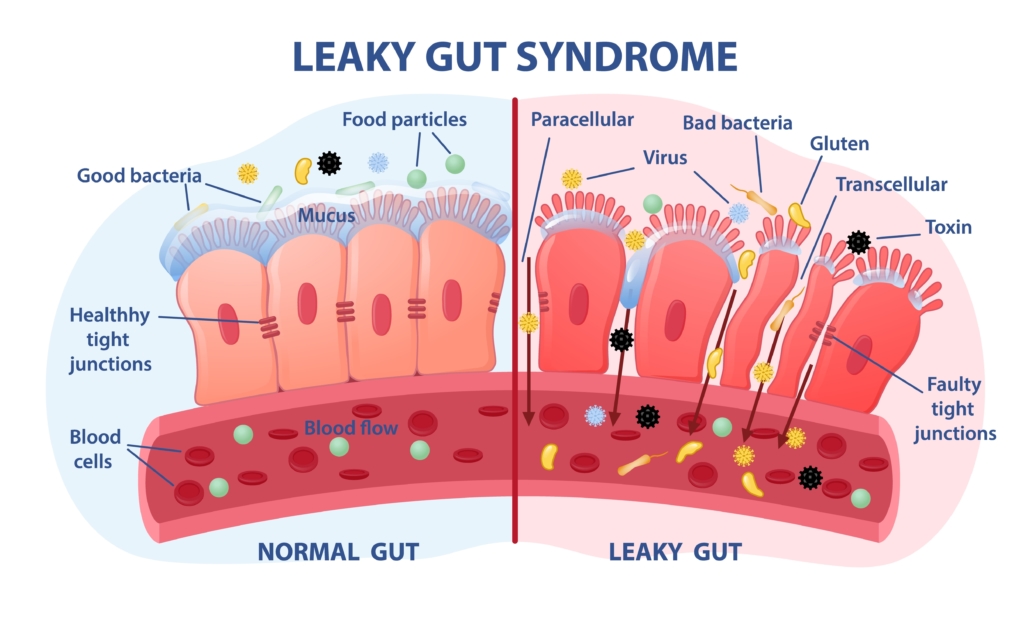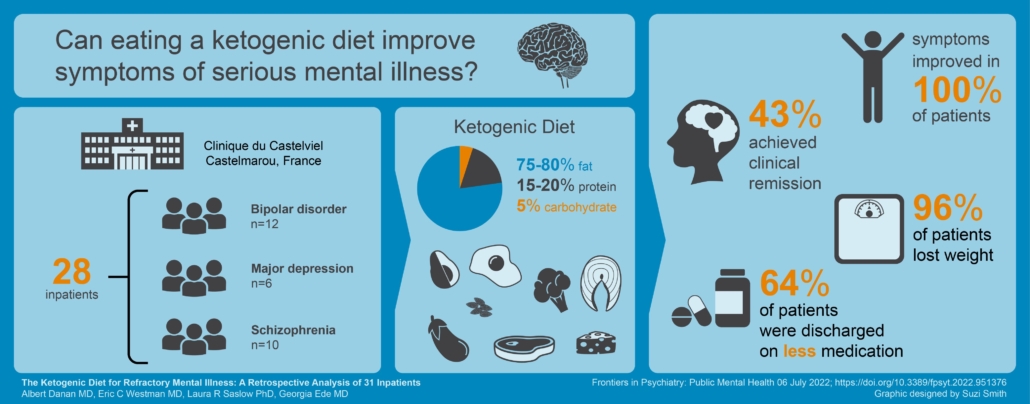We include products in articles we think are useful for our readers. If you buy products or services through links on our website, we may earn a small commission.
The Effects of Sugar on the Body

Sugar has become omnipresent in the standard Western diet. It lurks in various forms in nearly everything we consume, from the obvious pastries and sweets to the hidden sugars in processed foods, and even fresh fruits and vegetables. Over the years, our consumption of sugar has skyrocketed to nearly 250 grams of carbohydrates a day. With 82 grams directly from added sugars, and most of the rest coming from grains, [3] In this article, we’ll explore the effects of all this sugar on the body. Here’s a hint, it isn’t pretty!
Table of Contents
Sugar Causes Inflammation Throughout the Body
You’ve probably heard of inflammation. In fact, inflammatory diseases are an epidemic of modern civilization.
Across the globe, 3 out of 5 people die from chronic inflammatory diseases such as stroke, respiratory diseases, heart disorders, various cancers, and diabetes. With many millions more suffering from inflammatory diseases, including 2
- IBS
- Alzheimer’s
- Arthritis
- Osteoporosis
- Parkinson’s
- PCOS
In short durations, inflammation is an important immune response. But when our bodies are constantly subjected to modern lifestyle factors, the body is always under attack. In reponse, the inflammatory response never turns off, and this mechanism that is supposed to protect and heal begins to damage healthy tissue.
Added sugars, and high carbohydrate foods in general, have been routinely found to cause oxidative stress that results in chronic systemic inflammation.
Most people are not aware that our modern bodies preserve the metabolic systems that our ancestors evolved over millions of years as hunter-gatherers who relied on low-carb, high-fat diets of mostly meat.[4][ 5]
The modern diet, based on cultivated grains and added sugars, marks an extreme metabolic departure from the food we’re designed to thrive on. It’s no surprise that sugar affects the body by promoting inflammation in various ways:
- Glycation: sugar molecules bind to cells, DNA, RNA, and proteins in ways that cause cellular damage. Wrinkles and skin aging is a result of glycation

- Damages the glycocalyx: The glycocalyx is a delicate membrane that coats and protects every cell in the body. A healthy glycocalyx is responsible for regulating important functions, including cardiovascular health and immune system response.

- Dysregulates intestinal microbiome: Sugar feeds harmful gut bacteria and reduces protective bacteria, which can cause gaps in the intestinal lining. Pathogens can then leach into the bloodstream, where they are deposited throughout the body, triggering widespread and chronic inflammation.

Numerous studies find that inflammation is one of the effects of sugar on the body. [20] [21
A 2021 study comparing the effects of high-carb vs low-carb diets on a population of overweight women revealed that the high-carb diet was associated with increased markers of inflammation. [17]
Similarly, a 2014 study on people with type 2 diabetes compared a low-carb vs. low-fat diet. Though weight loss was similar for both groups, the low-carb diet dramatically reduced inflammation.[18]
A study on the effects of low to moderately-sweetened beverages on healthy young men found that drinking only a single 375 ML soda (40 grams of sugar) each day significantly increased inflammation along with insulin resistance, LDL “bad” cholesterol, and weight gain. [19]
Effects of Sugar on Body Weight
Countless studies show that sugar is a key factor in increased rates of obesity. [57],35 36 37
And there are numerous ways that sugar contributes to excessive weight gain.
Sugar promotes insulin sensitivity in fat cells. At the same time, sugar promotes insulin resistance in muscle cells and vital organs. [58] What this means is that sugar feeds fat cells while simultaneously starving cells in other important areas of the body. [59]
Additionally, high blood sugar levels interfere with the body’s ability to respond to the hormone leptin. Leptin is responsible for decreasing hunger cues. When you lose sensitivity to leptin, you store more calories as fat, stay hungry, and lose motivation to move your body. Essentially you’re in starvation mode even though you’ve had enough calories.12
Another way sugar drives obesity is as an ingredient in low-nutrient processed foods. Processed foods are designed to be hyper-palatable and trigger reward signals in the brain–a recipe for addiction. At the same time, processed foods are very low in nutrients. This combination of addictive stimulation and low nutrient value motivates people to overeat. 3 31
Effects of Sugar on the Heart
Research shows that the inflammation driven by sugar is a risk factor for cardiovascular disease. [15] [16]

A 2023 study published in the journal BMC Medicine found that diets high in added sugar–the kind you find in processed foods and soda, fruit, fruit juice, and syrups–increases the risk of heart disease and stroke. For every 5% increase in calories from sugar resulted in a 6% higher risk of heart disease, and a 10% increase in risk of stroke.[10]
In 2014 a study of over 30,000 participants found that those who consumed roughly twice as much sugar as those who got less than 10% of their daily calories from added sugar were 38% more likely to die from heart disease. [11]
The authors of a 2020 meta-analysis comparing high-carb and low-carb diets found that, “diets with high levels of carbohydrates, especially refined or high glycemic index carbohydrates…appear to be associated with hypertension, coronary heart disease, obesity, type 2 diabetes, metabolic syndrome and increased risk of mortality.” [12]
Many other studies have found that low-carb diets result in significantly better cardiovascular health outcomes in addition to improved weight loss and blood sugar regulation than low-fat diets that tend to be high in carbs.[13]
Effects of Sugar on the Brain
Considering that the brain uses 20% of the body’s energy intake, it’s no surprise that getting more of your calories from sugar will have significant effects on your brain.
- Sugar addiction: A 2013 study by researcher David Ludwig from Harvard found that consuming simple carbohydrates activated opiate and dopamine receptors in the craving and reward center of the brain. [6] Another 2013 study found that in animals, sugar stimulates the brain’s reward centers in a way that makes sugar more desirable than cocaine.[9] These irresistible reward signals override self-control causing overconsumption of sugar that can result in various metabolic diseases. [11]
- Impairs memory and cognitive ability: A 2021 study found that daily consumption of sugar-sweetened beverages during teenage years is linked to reductions in learning abilities and impaired memory in adulthood. The researchers suggest that these impairments are due to the way that sugar alters gut bacteria. [13]
- Increases risk of neurodegenerative disease: Diabetes, caused by overconsumption of sugar, and Alzheimer’s overlap by around 80%. [17] Excessive insulin can damage the hippocampus, an area of the brain where signs of Alzheimer’s first appear. [18] Diets high in added sugar reduce the production of brain-derived neurotrophic factor (BDNF), a hormone that is critical to the creation of new neural networks, memory, and learning.5 19
- Increases likelihood of psychological disorders: The effects of sugar impact gene expression and dopamine receptors in the brain. [26] A large-scale 2017 study have found that consuming sweet food and beverages resulted in a 23% increase in the risk of being diagnosed with common mental disorders such as depression and anxiety. The study controlled for various other factors including exercise, demographics, body fat levels, diseases, and other dietary habits.
A 2022 study examining the effects of eliminating sugar and dramatically reducing all carbohydrates for psychiatric inpatients for whom standard treatments were ineffective found remarkable benefits:[27]
- 100% of patients had significant improvements in depression, psychosis, and metabolic
- 96% of patients lost weight
- 64% of patients reduced and even discontinued medication
- 43% experienced total clinical remission

Effects of Sugar on the Liver
Because the liver is tasked with controlling how sugar is metabolized, the effects of sugar on this part of the body are profound.5
- Fatty liver disease: Excess sugar can overwhelm the liver’s ability to metabolize it, triggering the liver to turn sugar into fat. This results in a condition called non-alcoholic fatty liver disease (NAFLD). If sugar intake isn’t reduced, serious liver disease can occur.
- Insulin resistance: High sugar intake causes cells to become unresponsive to insulin. The pancreas compensates by producing more insulin. Increased insulin in the blood results in liver damage and inflammation.6
How to Protect Your Body from the Effects of Sugar
Though the effects of sugar on the body are damaging and wide-ranging, there are strategies you can take to protect your body.
- Remove sugar from your house.
- Practice mindful eating techniques.
- Adopt a low-carb diet such as keto, paleo, and carnivore.
- Game plan: When you know you’ll be in situations where sugar abounds, pre-load with healthy fat and protein-rich superfoods like red meat and eggs.
- Move your body: Physical activity stimulates the release of mood-boosting chemicals like endorphins and dopamine, which can fill the void that sugary foods are often used to fill. [31] Get your high naturally by walking, cycling, yoga, and swimming.
The Effects of Sugar on the Body: The Bottom Line
The effects of sugar on the body are various and can be profoundly detrimental.
The human body evolved to thrive on a pre-agricultural diet of mostly fatty animal products. Sugar from wild fruits was rare, and grains had not been cultivated. The modern diet high in added sugars and simple carbohydrates results in widespread inflammation, cognitive impairment, and organ damage.
The good news is that carbohydrates are a non-essential nutrient and can easily be substituted for healthy fats and proteins from sugar-free whole foods like fresh meat, eggs, and full-fat dairy.





















